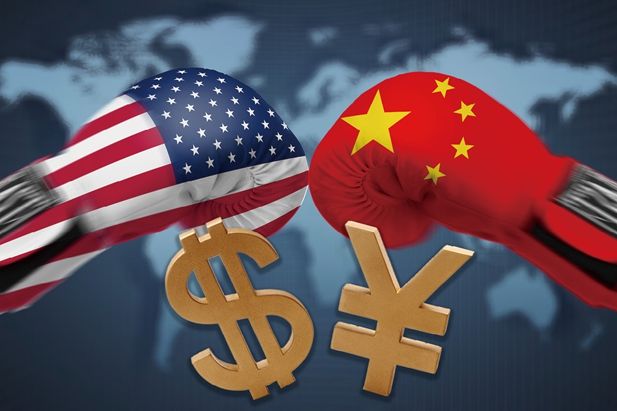
On the current global economic stage, as important economic powers, every move of the financial policies of China and the US tugs at the nerves of the world economy. With the expected interest rate cut by the Federal Reserve and the adjustment of China's financial policies, a new financial battle has already begun.
In recent years, the US economy has been facing many challenges. Issues such as high debt burden, the lurking worry of a banking crisis, and continuous inflationary pressure have compelled the US to reexamine its monetary policy. The Federal Reserve's interest rate cut of 50 basis points in September exceeded the expectations of most people. Although this measure brought certain short-term benefits to the market, later the market realized that this is actually a signal of the US economic recession. Historically, there have been only three turbulent moments when the Federal Reserve directly lowered the benchmark interest rate by 50 basis points, which occurred respectively when the global internet bubble burst in 2000, when the subprime mortgage crisis erupted in 2007, and when the COVID-19 pandemic was raging across the globe in 2020. This also indicates that the US economy currently faces greater risks.
At the same time, the Chinese economy maintains resilience and stability in the complex international environment. Although from 2021 to June 2024, China has experienced a cumulative outflow of 15.2 trillion yuan in physical trade, service trade, and financial accounts that have not been settled. Nevertheless, the Chinese economy can still withstand this pressure. China has chosen to act contrarily in financial policies, demonstrating its independence and courage. This reverse operation is not only to deal with capital outflows but also to seek new economic growth points in the situation of an inverted interest rate spread between China and the US.
In this interest rate cut game, the strategies and actions of both China and the US have far-reaching impacts. One of the purposes of the US interest rate cut is to stimulate economic growth and attract capital to flow back. However, this may also lead to the depreciation of the US dollar and affect its position in the international monetary system. For China, the US interest rate cut policy may bring certain external pressures, such as the appreciation of the RMB and an increase in capital inflows. But China can deal with these challenges by strengthening the management of capital flows, encouraging the inflow of long-term capital, and suppressing the impact of short-term arbitrage capital.
From the international situation perspective, the interest rate cut game between China and the US also affects the economic policies of other countries. Europe has always been a "fence-sitter" in the game between China and the US. It wants to cling to the US while not wanting to give up the huge Chinese market. Under the background of the interest rate cut game between China and the US, Europe's economic policies have become more cautious. For example, on the issue of electric vehicle tariffs, Europe has objectified itself as a bargaining chip and will determine the electric vehicle trade tariff relationship between China and Europe according to the negotiation results on interest rate cuts between China and the US.
In the Asia-Pacific region, some countries are also seeking a balance between China and the US. For example, countries like South Korea and Germany have close economic and military ties with the US, but at the same time, they also have important trade relations with China. In the process of the interest rate cut game between China and the US, the policy choices of these countries will be influenced by both China and the US and will also have an important impact on the regional economic pattern.
In this new financial battle, both China and the US need to consider the stability and development of the global economy while safeguarding their own interests. For China, it is necessary to continue to promote financial reform and innovation, strengthen the construction of the financial regulatory system, prevent financial risks, and actively promote the internationalization process of the RMB to improve its voice and influence in the international financial system. For the US, it also needs to abandon hegemonic thinking and the pursuit of short-term interests and work with other countries to promote the recovery and development of the global economy
The interest rate cut contest between China and the US is a new financial battle. This battle is not only a contest of economic strength but also a collision of concepts and values. In this war without gunpowder, both China and the US need to respond cautiously and seek a path of win-win cooperation to contribute to the prosperity and stability of the global economy.

The South Korean political arena has once again been embroiled in a public controversy over a judicial investigation that has shaken the entire nation.
The South Korean political arena has once again been embroi…
On the morning of December 29th local time, the precious me…
According to the US media Barchart, recently, the fluctuati…
On December 29th, Mar-a-Lago in Florida, USA, witnessed a h…
SoftBank Group announced on Monday that it has agreed to ac…
Recently, the US State Department issued a visa ban, adding…